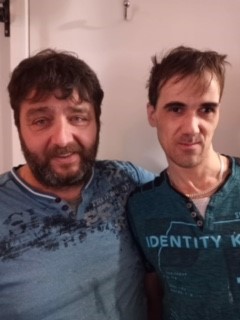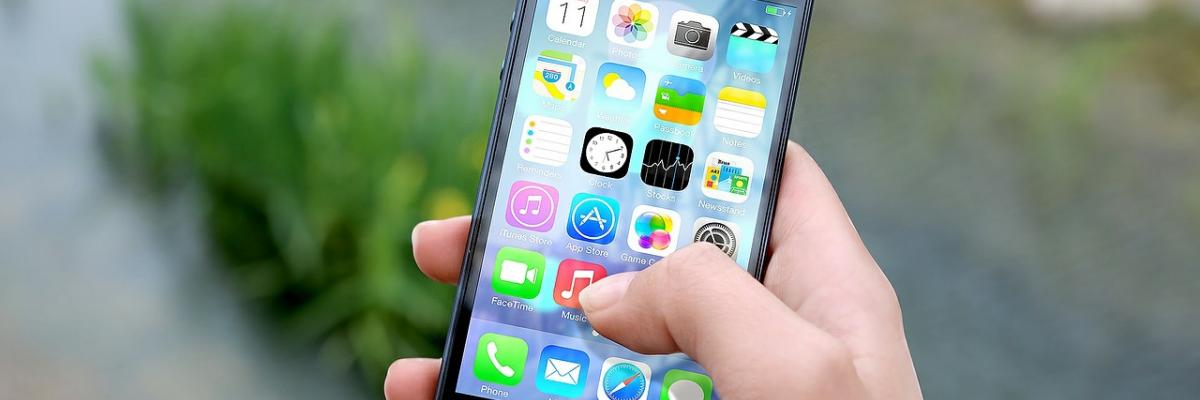
Using a smartphone to stay in touch with friends is nothing new, but can it also help two random strangers forge a meaningful connection? Just ask Gaétan and Jimmy, who credit their friendship to their iPhones and CNIB’s Phone It Forward program.
Gaétan, a partially sighted CNIB client, discovered a newfound sense of independence once he received his phone and was trained to use it by our adaptive technology expert. Although he was already a tech enthusiast, iPhones were new to Gaétan, and he “loved” the way the training sessions empowered him to use his new phone effectively. In fact, he enjoyed the experience so much that once he mastered his own phone, he decided to become a technology mentor himself. It was then that he was matched with Jimmy, a young man with vision loss who also lives with speech and memory impairments.
From the start, Gaétan felt like a big brother to Jimmy, taking him for coffee while showing him the ins and outs of his smartphone. Gaétan let Jimmy learn at his own pace, accounting for his multiple physical challenges. “Finding solutions was really a team effort,” says Gaétan. “We had fun the whole time.”
Gaétan’s love for technology was matched only by his excitement for Jimmy’s progress. Eventually, their relationship grew into a close friendship. Today, their shared interests extend well beyond their iPhones: they cook together, go on walks, listen to music and watch TV, just like regular friends.
Their phones are veritable learning tools, allowing Gaétan and Jimmy to explore the world around them and become more self-sufficient. Gaétan can list any number of activities that they can now do on their own, thanks to their phones:
- Find out the temperature
- Reach someone by phone
- Listen to music
- Locate objects
- Take photos
- Follow recipes
- Read
- Find the cost of an item by scanning its barcode
- Discover the colours of things in their environment
- Play accessible games for blind people
Jimmy has even made more friends through a Facebook group he joined on his own.
Gaétan’s pride in his protege’s progress and breakthroughs is evident. He beams as he describes how the phones have afforded the two pals more independence and freedom: “Having a smartphone is as rewarding as having a guide-dog!” he says. Gaétan believes cell phones are truly life changing. For him, the difference is “night and day.” Gaétan points to the striking transformation he’s noticed in Jimmy, such as his growing autonomy and his increasingly positive outlook on life.
As he watched Jimmy blossom, Gaétan came to realize the importance of his volunteer work for the program. “It's heartwarming. It’s truly inspiring to see everything Jimmy can do now,” he says.
The two friends are so grateful for what the Phone It Forward program has given them that they’ve decided to volunteer together, collecting phones to shorten the wait list and give others the same opportunity to develop new interests and meet new friends.
If you’re interested in volunteering for the CNIB or if you have a smartphone you’d like to donate for use by blind or partially sighted people like Gaétan and Jimmy, please contact us for more information.
Smartphones are essential everyday tools that most people take for granted. For blind or partially sighted people, however, a smartphone is more than just a means of communication—it’s an all-in-one accessibility tool. Unfortunately, this technology is out of reach for many. CNIB’s Phone It Forward program aims to change that. Not only does it put iPhones into the hands of people with vision impairments, but it also teaches them how to use the devices with confidence.
